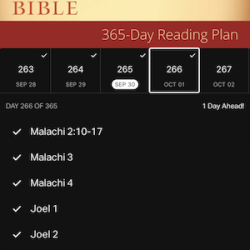When you happen to come across different word choices in different Bible translations, do you wonder, like I do, what’s the difference? And does that make you wonder, like it does for me, which word choice is “right”? Is there a choice that’s more “just”?
Hmmm, is there a choice that’s “just right”?
Let’s take the next step on our journey through Paul’s list of favorite things to think about to release anxiety – and think about these 2 very words.
Let’s just lay it down, right?
“Finally, brothers and sisters, whatever is true, whatever is noble, whatever is right… think about such things.” Philippians 4:8 (NIV) (bold mine)
“Finally, brothers, whatever is true, whatever is honorable, whatever is just… think about such things.” Philippians 4:8 (ESV) (bold mine)
First, for simplicity we’ll focus on these 2 translations because they are the ones that I personally read from most often. Second, here are 2 more examples: the New Living Translation (NLT) uses the word “right” in this verse, and the New King James Version (NKJV) uses “just.”
And, to get secular definitions under our belts, a scholarly article out of Princeton states that, once we’ve passed from Latin, through French and German, to English, “right” tends to refer to actions, and “just” tends to refer to the do-er of said actions.
Now just dig right into your Bible(s)
Because Philippians is a book of the New Testament, and much of the New Testament was originally written in Greek, we have to go back to the Greek. The original Greek word actually translates to “just… morally right, proper.”
Hmph, we’ve got both “just” AND “right” in there – what to do?!
My favorite discussion of this question comes from one of my favorite platforms that I use in my own Bible studies: The Bible Project. After a reassuring “that’s okay!” their writers encourage us that “we, like scholars, can learn to read and compare different versions in order to gain a deeper, fuller understanding of Scripture.”
This same article continues:
“No single English translation will ever represent the original biblical languages perfectly. Why? In part because the Bible’s ancient languages do not function like English. A word in Hebrew, Greek, or Aramaic might not have an exact English word to match. And each language constructs sentences differently, which means a variety of words or reconstructed sentences will always be necessary.
This is okay, even good. It keeps us in an inquisitive, learning mode alongside others who are also trying to understand the Bible. It helps us remember that our Bible is not an answer book or instruction manual—it is a collection of sacred Scriptures we are to meditate upon within community.
When translations differ, we can wonder: Did English culture change? Or is something so fascinating and complex happening in the original languages that it can’t be resolved with only one English word?”
What I just noticed, right now
First, thank you for playing along with my little play on words in the headings of this article.
Second, here’s what I’ve noticed over the past year of really digging into Bible study:
Different translations tend to jump out at me depending on what’s happening in my life at the moment. For example, this exact part of this verse first made sense to me on an intellectual level when I read the NIV translation – which uses the word “right” – at a moment when my life was generally going smoothly. Everything was “going right” as that time.
However, when I read the ESV translation at a moment when a close friend hurt me deeply, the ESV’s word “just” resonated with my emotions and truly helped to soothe them – more than the NIV’s word “right” did. And I have to say, repeating this over time, my emotions were “made right.”
Reflective Response: Finding YOUR “just right” translation
Using Philippians 4:8 as an example (and then any other verse, as they come up for you), here are 3 questions you can ask yourself to find your “just right” translation:
- Which translation did you see or hear in the moment? Whether you read it in a devotional or it was part of a sermon at church, God certainly has His ways of showing you exactly what you need.
- What translation(s) do your trusted Christian mentors seem to lean into? While each of us is on our own path with God, we were also meant to study His Word both on our own and together. It’s worth at least considering, pondering, the versions your mentors use the most.
- Do you notice that a certain translation “suddenly makes sense” in a profound way when you’re going through a challenging time? Or vice versa, does a certain translation actually “rub you the wrong way”? This may be the Holy Spirit guiding you with His quiet – or loud – voice. Pay attention to it.
Closing note: Try not to get too caught up in too many translations – since the 7th century, there have been about 100 in English alone! To use myself as an example, I regularly use the NIV and ESV, and sometimes I explore the NKJV. Occasionally, I’ll go into the CJB. Meanwhile, the NLT tends to feel to casual and clipped for me – but that’s me!
Now go find your “just right.” And feel free to shoot me an email – I’d love to hear your short list!

















